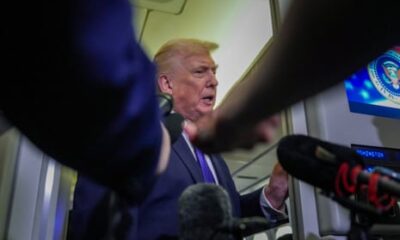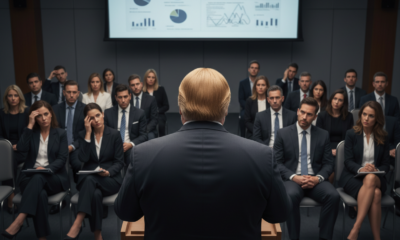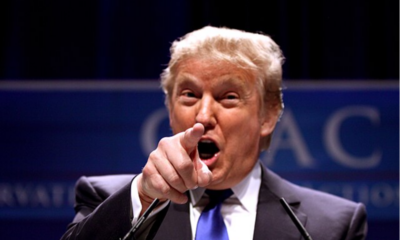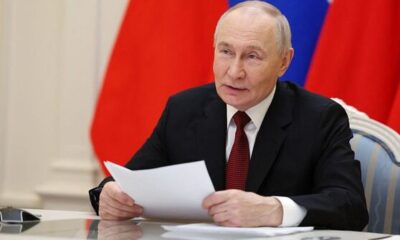Politics
Fears of Historical Repeat as Trump Meets Zelenskyy in D.C.
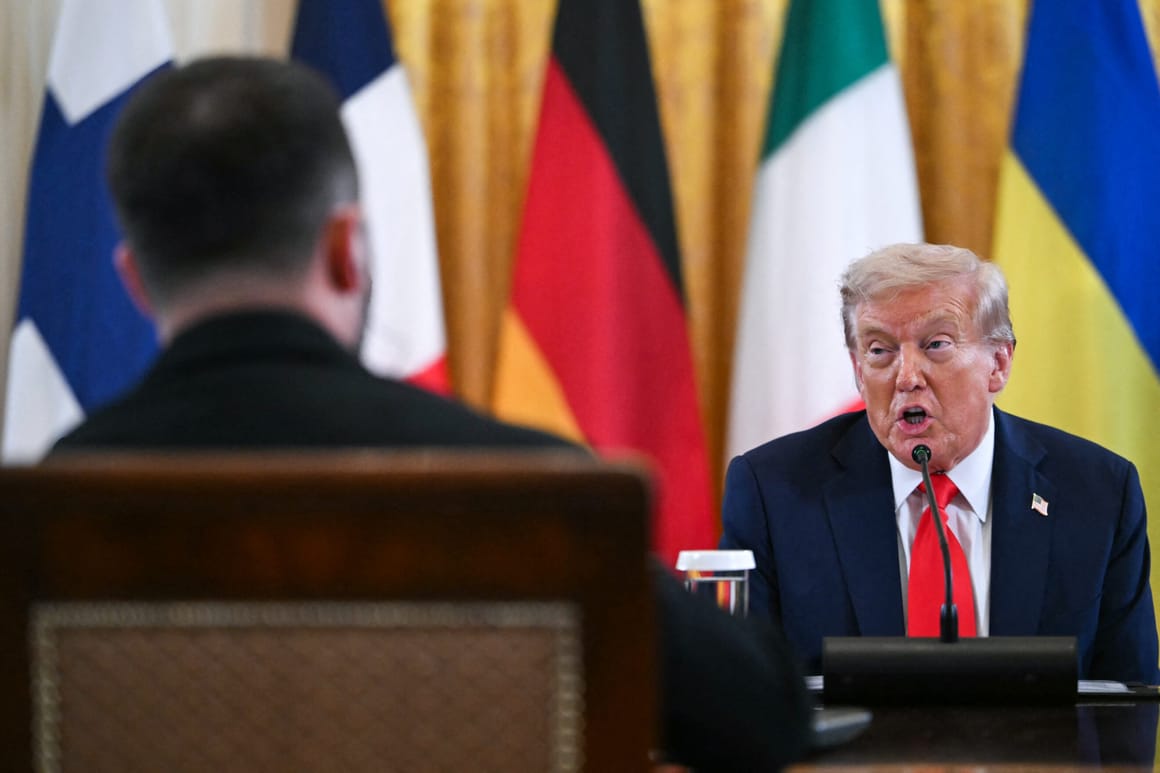
Concerns are rising in Europe regarding potential parallels between the current geopolitical landscape and the events of 1938, particularly as former President Donald Trump meets with Ukrainian President Volodymyr Zelenskyy in Washington on March 18, 2025. This meeting occurs in the context of Trump’s recent discussions with Russian President Vladimir Putin, leading to fears that Ukraine could be pressured to concede critical defensive positions in its eastern Donbas region.
The historical context is stark. In 1938, the cession of the Sudetenland to Nazi Germany significantly weakened Czechoslovakia’s military defenses, ultimately contributing to its rapid collapse. Observers worry that a similar fate could befall Ukraine if it is compelled to surrender key defensive territories to Russia. “It is crucial for Europe not to turn this into another Munich or Yalta moment,” cautioned Tomáš Kopecký, the Czech government commissioner for the reconstruction of Ukraine. This sentiment reflects a deep-seated anxiety about Western powers repeating past mistakes of appeasement.
Reports suggest Trump has indicated that a peace deal might require Ukraine to hand over the entirety of the Donetsk and Luhansk provinces, areas currently occupied by Russian forces. Approximately three-quarters of Donetsk and nearly all of Luhansk are under Russian control. In response, Zelenskyy has firmly rejected any such concessions, stating, “We will not leave Donbas. We cannot do this.” He emphasizes that any retreat could serve as a launching pad for future Russian offensives.
Military analysts, including experts from the Institute for the Study of War, warn that conceding territory in the Donbas would have dire implications for Ukraine’s defense capabilities. The Kremlin is reportedly demanding that Ukraine relinquish what is known as its “fortress belt”—a series of heavily fortified positions that have been developed over the past decade. “Ukraine has spent the last 11 years pouring time, money, and effort into reinforcing the fortress belt,” the institute noted. Losing these fortified positions would likely force Ukraine to establish new defenses in less advantageous terrain, making it more vulnerable to Russian advances.
Zelenskyy has articulated the risks associated with any proposed ceasefire that lacks robust security guarantees. “If today we leave Donbas, from our fortifications, we will clearly open a bridgehead for preparing an offensive by the Russians,” he remarked, underscoring the potential for renewed aggression if concessions are made without adequate protections.
The historical analogy extends beyond the Munich Agreement; it also evokes memories of the Yalta Conference, where post-war Europe was divided with little regard for the nations involved. Ukrainian political analysts have highlighted the potential consequences of a ceasefire agreement lacking security assurances. Olexiy Haran, a professor at the National University of Kyiv-Mohyla Academy, warned that such an agreement could “de facto recognize Russia’s control of Ukrainian territories” and invite further aggression.
Diplomatic voices along NATO’s eastern flank express concerns that Russia may leverage peace negotiations to gain strategic advantages that it has not achieved on the battlefield. The Latvian intelligence agency recently reported that Moscow seeks to compel Ukraine into concessions, recognizing that its military resources may not suffice for maximalist goals.
Despite these fears, some analysts note significant differences between the current situation and that of 1938. Unlike Czechoslovakia, which was excluded from negotiations, Zelenskyy is actively engaging in discussions with Trump. European officials express cautious optimism that the U.S. will not betray Ukraine. Kopecký remarked, “I do not see this happening,” emphasizing the importance of Zelenskyy’s presence at the negotiating table.
As the situation develops, the implications of Trump and Zelenskyy’s discussions will be closely monitored, with many hoping that lessons from history will guide contemporary decision-making in the face of Russian aggression.
-

 World2 months ago
World2 months agoCoronation Street’s Shocking Murder Twist Reveals Family Secrets
-

 Entertainment2 months ago
Entertainment2 months agoAndrew Pierce Confirms Departure from ITV’s Good Morning Britain
-

 Health5 months ago
Health5 months agoKatie Price Faces New Health Concerns After Cancer Symptoms Resurface
-

 Health2 weeks ago
Health2 weeks agoSue Radford Reveals Weight Loss Journey, Shedding 12–13 kg
-

 Entertainment6 months ago
Entertainment6 months agoKate Garraway Sells £2 Million Home Amid Financial Struggles
-

 Entertainment5 months ago
Entertainment5 months agoAnn Ming Reflects on ITV’s ‘I Fought the Law’ Drama
-

 World3 months ago
World3 months agoBailey Announces Heartbreaking Split from Rebecca After Reunion
-

 Entertainment2 months ago
Entertainment2 months agoDavid Jason and Nicholas Lyndhurst Eye Reunion for Only Fools Anniversary
-

 Entertainment3 months ago
Entertainment3 months agoCoronation Street Fans React as Todd Faces Heartbreaking Choice
-

 World3 months ago
World3 months agoEastEnders’ Nicola Mitchell Faces Unexpected Pregnancy Crisis
-

 Entertainment2 months ago
Entertainment2 months agoBradley Walsh Sparks Strictly Come Dancing Hosting Speculation
-

 Entertainment2 months ago
Entertainment2 months agoTwo Stars Evicted from I’m A Celebrity Just Days Before Finale

